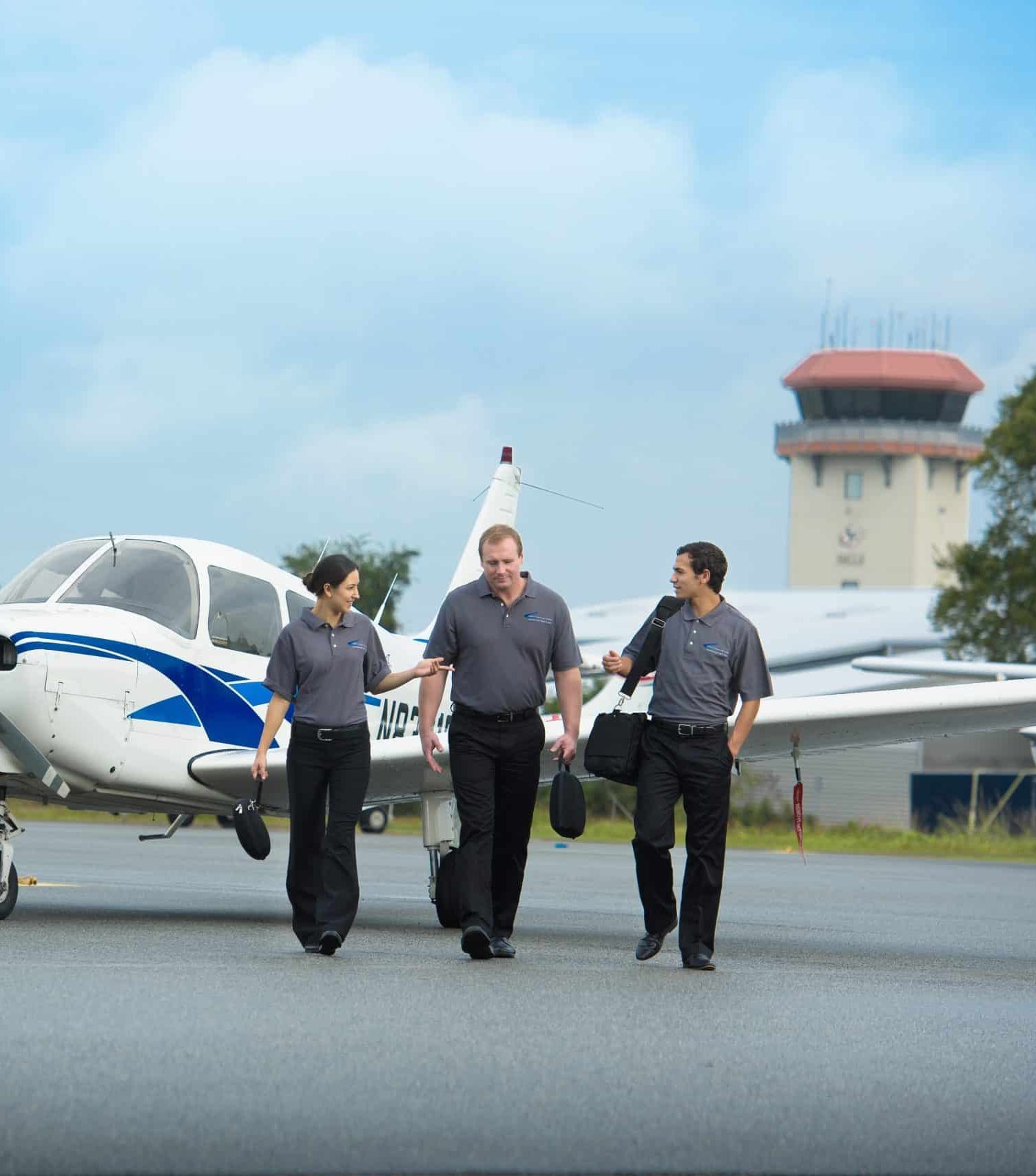Aviation, once synonymous with busy airports and responsibilities on-site, is going through the complete transformation. Thanks to advances in technology and a growing focus on flexibility, remote airline jobs have become a major shift in how the industry functions. These jobs allow individuals to make a difference in the aviation industry from their home or remote location, changing the traditional path to work. They also offer unique work-life balance.

Image credit: flightschoolusa.com
The Emergence of Remote Airline Jobs
In the past, roles that required physical presence were prevalent within the aviation sector. These included pilots, ground staff, and flight attendants. Digital technology has transformed the way airlines conduct their business. Many tasks, which once needed face-toface interactions, are today be performed online. Remote jobs are a wonderful alternative for airlines. From data analysis to customer service inquiries they have proven themselves to be effective and reliable option.
This isn’t just about efficiency. Airlines that embrace remote work offers cost-effective solutions through reducing overhead costs that are associated with office space. For employees, the capability to work from home eliminates commute problems, promotes a better lifestyle, and opens the door to international opportunities.
Roles in Remote Airline Jobs
The range of remote airlines jobs is extensive, covering several jobs that can be tailored to specific qualifications and abilities. The most well-known tasks include:
Customer Service Representatives (CSR) They are able to manage reservations, answer passenger queries, and address complaints virtually makes this one of the most in-demand assignments for airline employees that are remote.
Revenue Management Analysts (RMA) The professionals are experts in using the latest analytical and data-driven tools in order to optimize ticket pricing and revenue streams. They can work in remote areas.
Marketing Specialists: Airlines depend on digital marketing experts to craft campaigns as well as manage social media accounts, and enhance the engagement of their customers on the internet.
Travel Agents: These professionals use technology to help clients organize their schedules and make reservations for flights.
IT and Cybersecurity Professionals Remotely completing critical tasks like managing IT infrastructure, assisting airliners and protecting data is possible.
Remote airline jobs with advantages for flight Benefits
One of the most attractive advantages of remote airline jobs that offer benefits for flights is the mix of flexibility in the workplace and the traditional perks of aviation. These roles are becoming more popular:
Flexibility in work and life: Remote positions permit employees to tailor their work schedules so that they can meet personal and professional obligations which can lead to better satisfaction at work.
Cost savings: Working from home eliminates daily commuting expenses, including transportation and meals, leading to substantial savings.
Benefits of Travel: Many airlines provide remote employees with benefits, such as a reduced or no cost travel. This not only enhances employee satisfaction, but also offers the opportunity for unique travel opportunities.
Global Accessibility: Remote positions permit professionals from different locations to enter the aviation industry which creates a more inclusive and diverse workforce.
Airlines Need Remote Workers to have the right skills
Certain abilities are needed to be successful in remote airline jobs.
Technical Proficiency is essential for smooth remote operations.
Communication Skills: Good written and verbal communication skills enable effective collaboration between teams.
Time management: The ability to organize tasks and deadlines on your own is essential for success in remote working environments.
Problem-Solving in Remote Roles – Remote jobs require agility and quick thinking to solve problems, even with no immediate help.
How do you secure remote Airline jobs
To get a remote air position, you have to plan strategically. Here are a few steps to get you started:
Research Opportunities: Check out online career websites for airlines as well as remote job boards to find jobs that match your abilities and preferences.
Polish your resume. Highlight your experience working remotely and technical skills.
Use Networking to connect with aviation professionals sector on platforms such as LinkedIn to discover new opportunities.
Prepare for virtual interviews Answer questions that demonstrate your ability to handle remote responsibilities and work independently.
Remote Airline Jobs The Future
As airlines continue to invent Remote jobs for airlines are predicted to rise in popularity. The advancements in technology for communication, data analytics, and automation are making it easier for professionals to join the aviation industry from anywhere around the globe.
Remote work is a fad that mirrors the changes in workplaces of today which place emphasis on flexibility, efficiency, and satisfaction. If you’re interested in a career in aviation, without the limitations of traditional jobs remote airline jobs provide an exciting and feasible path.
By taking advantage of the opportunities available, professionals have the chance to reap the benefits of both the opportunity to be part of one of the fastest-growing industries, while also enjoying the flexibility of remote work. Whether you’re a seasoned aviation expert or someone looking to break into the field, remote airline jobs with flight benefits provide the perfect platform to take your career to new heights.